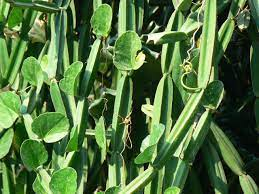Echinacea purpurea
Echinacea is a plant that
has been used for centuries as a natural remedy for a variety of ailments. The
plant is native to North America, where it has been used by Native American
tribes for its medicinal properties. In recent years, echinacea has become
increasingly popular as a natural supplement that can be used to support
overall health and well-being.
One of the primary uses
of echinacea is to boost the immune system. The plant contains a range of
compounds that have been shown to increase the production of white blood cells,
which help to fight off infections and disease. Studies have shown that
echinacea can be effective in preventing and treating colds, flu, and other
respiratory infections.
Echinacea has also been
found to have anti-inflammatory properties. Inflammation is the body's natural
response to injury or infection, but chronic inflammation can lead to a range
of health problems, including arthritis, heart disease, and cancer. Studies
have shown that echinacea can help to reduce inflammation and may be effective
in treating conditions like rheumatoid arthritis and inflammatory bowel
disease.
In addition to its
immune-boosting and anti-inflammatory properties, echinacea has also been found
to have antioxidant properties. Antioxidants are compounds that help to protect
the body from damage caused by free radicals, which are harmful molecules that
can contribute to the development of chronic diseases like cancer, heart
disease, and Alzheimer's disease. Echinacea contains a range of antioxidants,
including flavonoids, phenolic acids, and alkamides.
Echinacea is available in
a variety of forms, including capsules, teas, and tinctures. It is generally
considered safe for most people when taken in recommended doses. However, like
all supplements, it can interact with other medications and may cause side
effects in some people. It is important to talk to a healthcare provider before
taking echinacea or any other herbal supplement.
One of the key active
compounds in echinacea is echinacoside, which is found in high concentrations
in Echinacea purpurea. Echinacoside has been found to have a range of health
benefits, including anti-inflammatory and antioxidant properties. It has also
been found to have neuroprotective effects and may be effective in treating
conditions like Alzheimer's disease and Parkinson's disease.
Another active compound
in echinacea is alkamides, which are found in high concentrations in Echinacea
angustifolia. Alkamides have been found to have a range of health benefits,
including immune-boosting, anti-inflammatory, and antioxidant properties. They
may also be effective in treating conditions like eczema and psoriasis.
Echinacea can be used to support overall health and
well-being in a variety of ways. Some of the most common uses of echinacea
include:
- Boosting
the immune system: Echinacea is often used to prevent and treat colds,
flu, and other respiratory infections. It can also be used to support the
immune system during times of stress or illness.
- Reducing
inflammation: Echinacea has anti-inflammatory properties and can be
effective in treating conditions like rheumatoid arthritis and
inflammatory bowel disease.
- Supporting
skin health: Echinacea has been found to have antioxidant properties and
may be effective in treating conditions like eczema and psoriasis.
- Supporting
brain health: Echinacea contains compounds like echinacoside, which have
been found to have neuroprotective effects and may be effective in
treating conditions like Alzheimer's disease and Parkinson's disease.
- Supporting
overall health and well-being: Echinacea is a natural supplement that can
be used to support overall health and well-being. It is a safe and
effective way to promote overall health and prevent disease.
While echinacea is generally considered safe for most
people when taken in recommended doses, it can interact with certain
medications, particularly those that suppress the immune system or affect liver
enzymes. Additionally, echinacea should not be used by people with autoimmune
disorders or allergies to plants in the daisy family, as it may worsen these
conditions.




Comments
Post a Comment